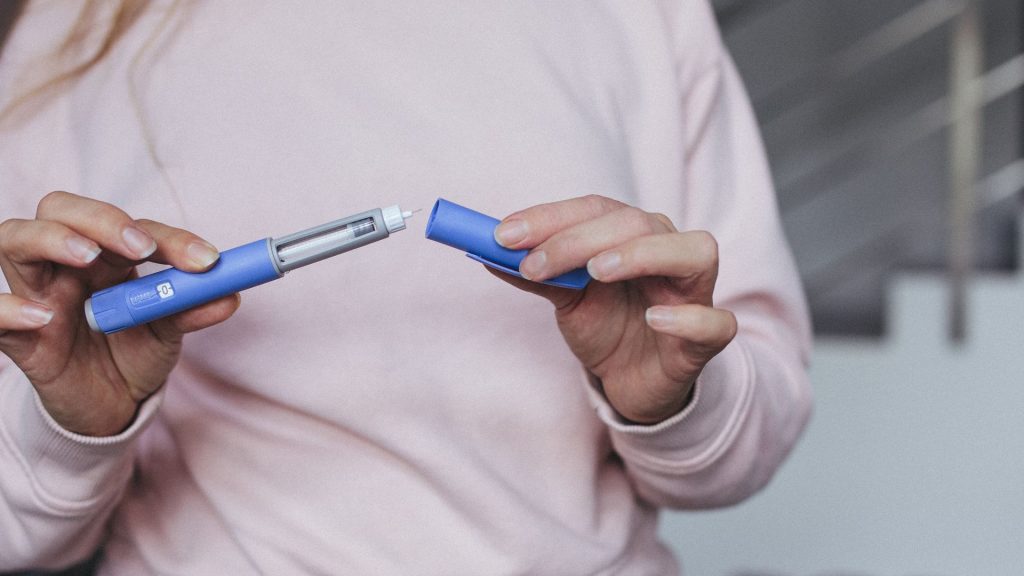Could popular weight-loss drugs help you ditch one six-pack in pursuit of another?

While Ozempic and Wegovy may be helping people burn fat in pursuit of their ideal beach bod six-pack, the popular weight-loss drugs could also help people cut down on their desire for a different type of six-pack. According to a new study published in Diabetes, Obesity and Metabolism, liraglutide and semaglutide weight-loss drugs were found to reduce alcohol cravings and consumption by nearly 70% over four months.
The study’s lead author, Dr. Maurice O’Farrell, who co-founded the Medication Weight Loss Clinic in Dublin, presented his findings Friday, May 9, at the 32nd European Congress on Obesity in Spain.
O’Farrell’s study, performed in conjunction with University College Dublin and colleagues in Saudi Arabia, initially looked at the drinking habits of 262 adults who had been prescribed GLP-1 weight-loss drugs. The participants self-reported their alcohol intake and were categorized into three groups –– non-drinkers, rare drinkers and regular drinkers.
While only 188 of the original 262 participants completed the study, which required follow-ups over the course of four months, none of them increased their alcohol intake. Rather, across the groups, alcohol consumption decreased by nearly 70%, on average.
“The significance of this has to be taken into context of what’s available to treat alcohol use disorder,” O’Farrell told ABC News. “The real advantage that this medication has is compliance, and what this medication does is it gives people a degree of control, it gives the concrete guardrails, and that is something that is completely unique.”
Unbiased. Straight Facts.TM
About 1 in 8 U.S. adults say they’ve taken a GLP-1 for various reasons, including weight loss, treating diabetes, and preventing heart attacks or strokes, according to KFF.

Europeans are often prescribed the alcohol-reduction drug nalmefene, something GLP-1s outperformed or were comparable to in O’Farrell’s study.
Specifically, those categorized as regular drinkers ––roughly six or more standard drinks such as a beer or glass of wine per week –– cut back on their consumption the most. These results held regardless of gender.
Additionally, O’Farrell’s colleague, Professor Carel le Roux, described cutting back on alcohol using GLP-1s as “effortless.”
“The exact mechanism of how GLP-1 analogs reduce alcohol intake is still being investigated, but it is thought to involve curbing cravings for alcohol that arise in subcortical areas of the brain that are not under conscious control,” said le Roux. “Thus, patients report the effects are ‘effortless.'”
Although the study didn’t conclusively state how GLP-1s reduce alcohol cravings, ABC News notes that a possible explanation could be how the drugs affect parts of the brain that respond to reward and satisfaction.
“They attenuate dopamine release in reward pathways, and these pathways are common to food satisfaction but also to the pleasure people get from alcohol,” O’Farrell said. “They drink more slowly and also the gastric emptying is slowed –– that means the absorption of alcohol is slower, so it is less pleasurable.”
In their study, the researchers note several limitations, including a small participant pool, self-reported alcohol intake, the absence of a control group and “observational nature of the study,” as well as a relatively short follow-up period.
“Furthermore,” the researchers add, “potential confounding variables include the effect of physician counselling regarding alcohol intake and decisions patients may have made about changes in their lifestyle.”
Even still, the fact that they conducted their study in a “real-world” setting gives the researchers hope that they might have unlocked a new door to helping people manage alcohol use disorder.
“GLP-1 analogs have been shown to treat obesity and reduce the risk of multiple obesity-related complications. Now, the beneficial effects beyond obesity, such as on alcohol intake, are being actively studied, with some promising results,” said le Roux.




